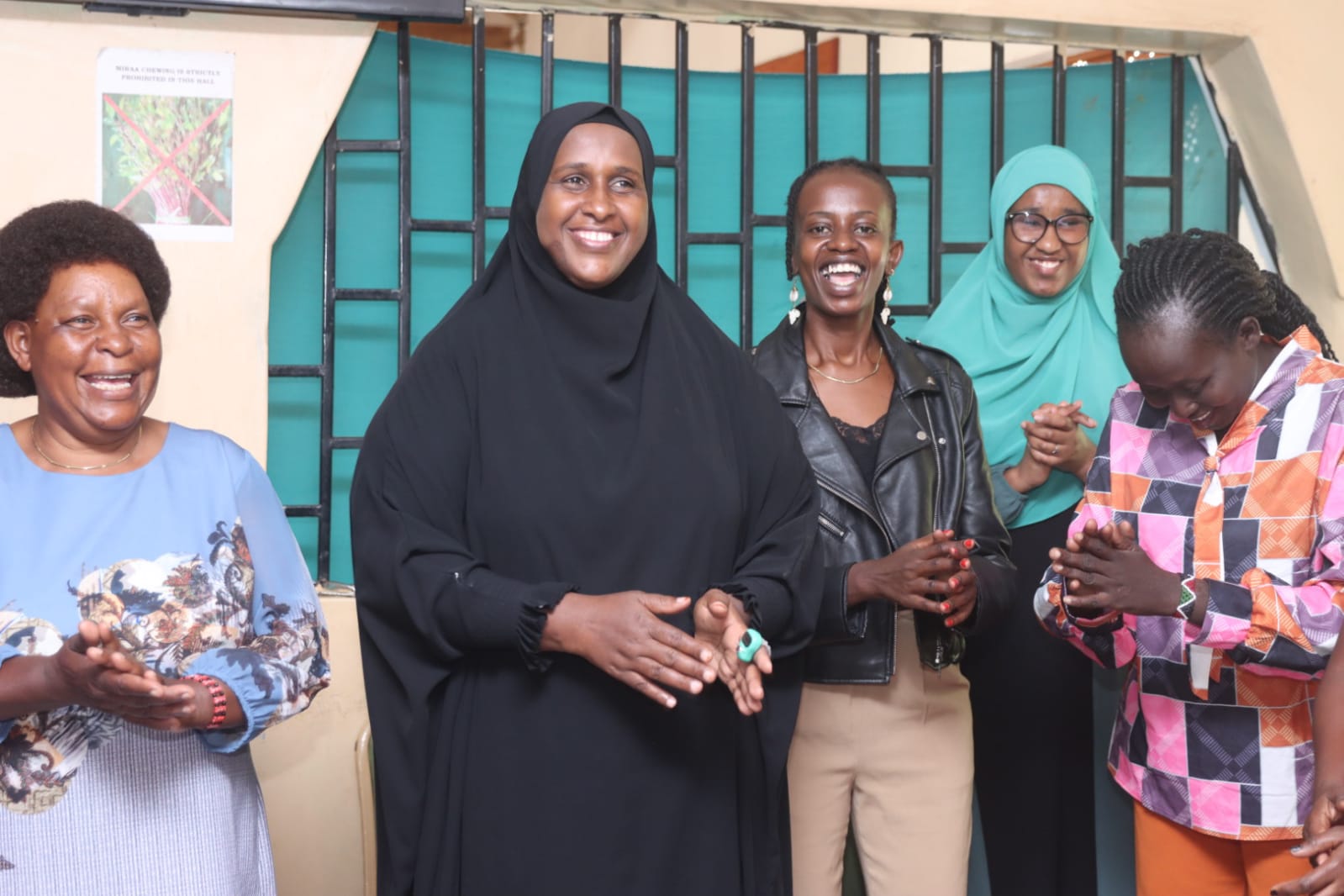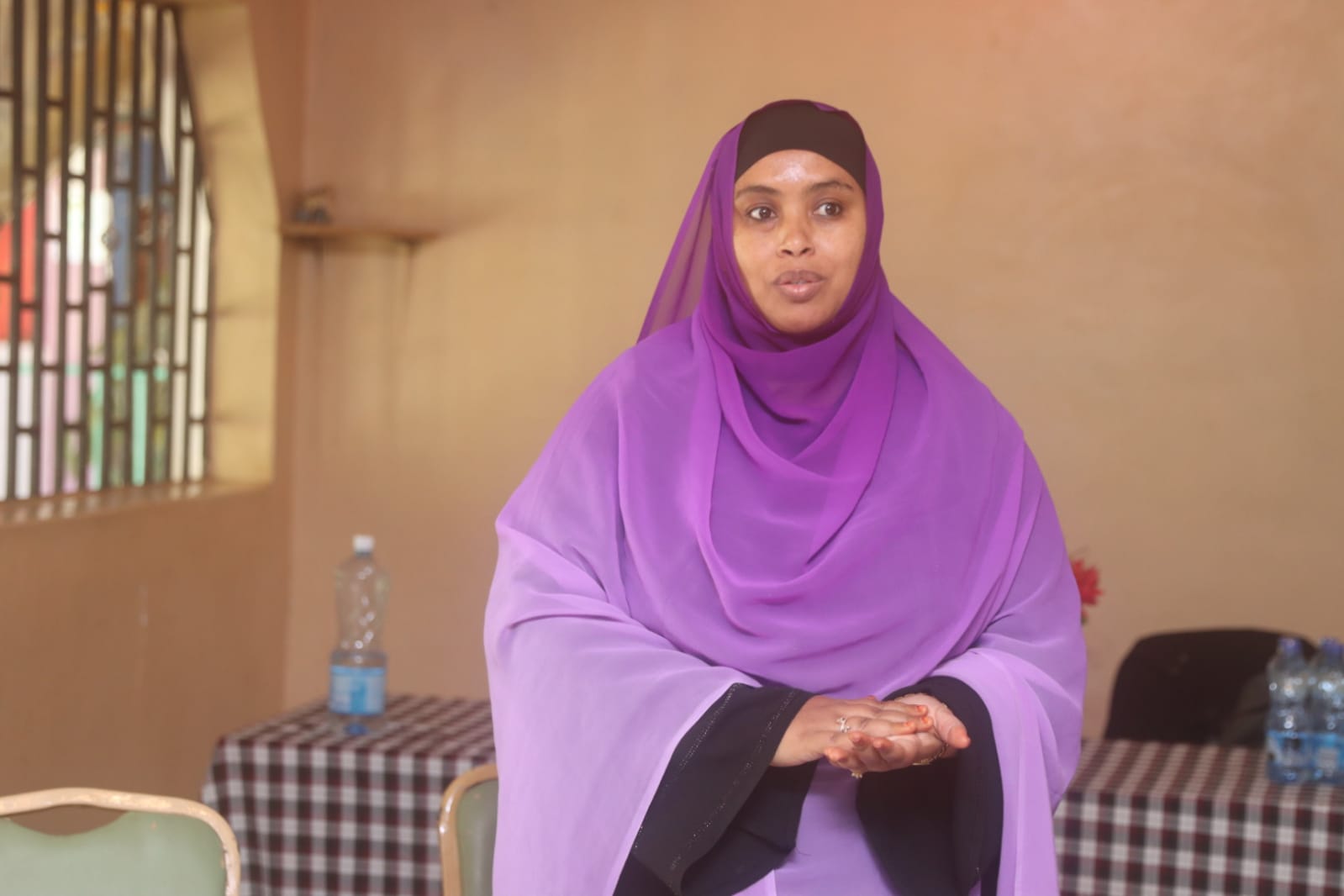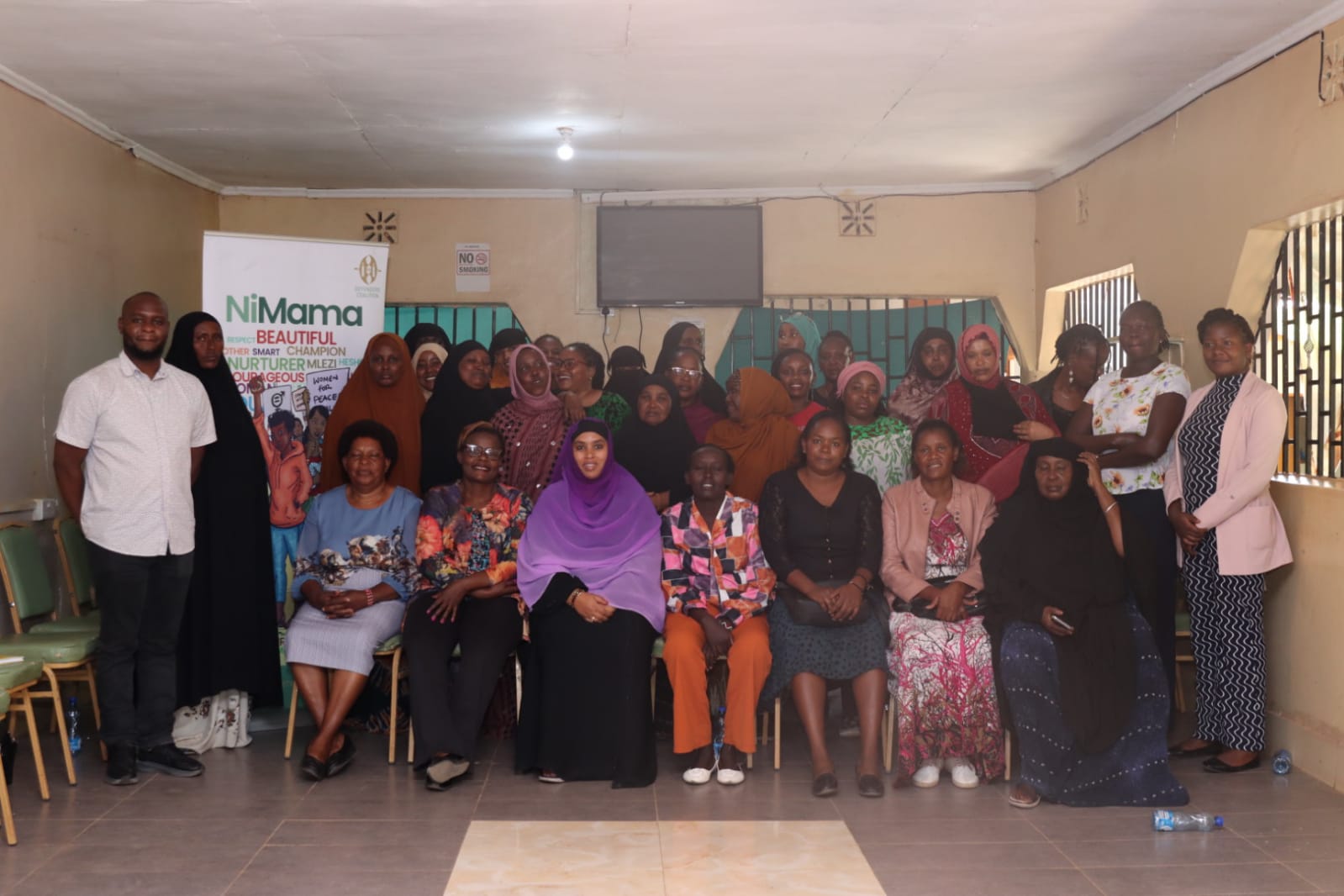In the vast northern Kenya, where the sun scorches the earth and drought is an ever-present threat, the communities of Marsabit and Isiolo have long struggled to survive. In the arid and semi-arid regions, pastoralism is not just a way of life but a means of survival. Yet, the challenges these communities face go far beyond the land’s harshness. Poverty, limited access to basic services, and environmental degradation are constant companions. And as the climate changes, these challenges only grow more severe.

Participants during the Mama Mazingira Dialogue engaging in a session.
Against this backdrop, the Women Human Rights Defenders of Marsabit and Isiolo emerged as powerful voices in their communities. These women are more than just activists; they are the protectors of their people, advocating for the rights of women and marginalized groups. However, as the years went by, they began to see that the impacts of climate change threatened everything they had fought for. Extreme weather conditions have become more frequent and severe, weather patterns have shifted unpredictably, and the land they relied on has become increasingly barren.
These women knew that something had to be done. They understood that the fight for human rights was now also a fight against climate change. And so, they began seeking new ways to address these challenges, determined to protect their communities from the worsening impacts of a changing climate.

This is where the story of the Mama Mazingira Dialogue begins. Supported by a regional development partner- Hivos East Africa and implemented by the Defenders Coalition, the Mama Mazingira Dialogues were born out of a simple yet powerful idea: to bring together WHRDs, community members, and duty bearers from Marsabit and Isiolo counties for a series of action-oriented community-led conversations. They sought to bridge the gap between state and non-state actors, ensuring that the voices of WHRDs were heard in the halls of power where climate policies were being shaped.
On 13th August, the Defenders Coalition embarked on a journey to Isiolo and Marsabit Counties, where they facilitated critical conversations on 14th August and 16th August, respectively. During these discussions, Women Human Rights Defenders expressed concerns over a range of pressing issues, including the gendered impact of climate change, concerns about climate financing through carbon credits, land grabbing, cultural heritage, climate justice, and conflicts.
Among these courageous women was Sarah, a passionate WHRD from Isiolo. Sarah had always been a fierce advocate for her community, but her perspective on the climate crisis deepened after a life-changing experience. Through the support of the Defenders Coalition, Sarah was privileged to attend a Summer School Climate Justice Class. It was there that she learned a profound and unsettling truth: many of those who are most affected by climate change are women.
This realization struck a chord with Sarah. She had seen firsthand how droughts and environmental degradation disproportionately impacted women in her community. Women were often the ones walking longer distances to find water, struggling to feed their families when crops failed, and bearing the brunt of the health impacts of a changing climate. At the Summer School, Sarah connected with other women who were facing similar challenges. She learned about strategies for climate resilience, the importance of integrating gender perspectives into climate policies, and the power of collective action. When Sarah returned to Isiolo, she brought back not just knowledge but a renewed sense of purpose.
As the dialogue progressed, it was clear that the women had started to see themselves not just as victims of climate change but as leaders in the fight against it. They realized that their unique positions within their communities gave them the power to influence change. They began to engage more actively in climate discussions, bringing their lived experiences to the table and advocating for the needs of their communities.
One of the most troubling aspects Sarah and other WHRDs began to address was the way climate change exposed young girls to heightened risks of gender-based violence and unplanned pregnancies. As water sources dwindled and grazing lands became scarce, families were forced to send their daughters farther from home in search of water and food for their cattle. These long and dangerous journeys often brought young girls into contact with men and boys who took advantage of their vulnerability, leading to instances of abuse. The harsh reality was that these girls, already burdened with the responsibility of finding sustenance for their families, were now facing the additional trauma of sexual exploitation, resulting in unplanned pregnancies that further jeopardized their futures.
The Mama Mazingira Dialogue provided a platform for WHRDs to bring these critical issues to the forefront. They highlighted the need for community-based solutions to protect young girls, such as creating safer routes for water collection, increasing awareness about the risks, and advocating for the establishment of support systems for victims of gender-based violence. The WHRDs were not only advocating for immediate action but also the integration of these concerns into broader climate adaptation and resilience strategies.
The impact of the Mama Mazingira Dialogue was profound. Not only did it lead to greater involvement of WHRDs in climate policy and action, but it also empowered these women to continue their advocacy work with renewed vigor. They had always been defenders of their communities, but now they were also recognized as key players in the fight against climate change.
In the end, the Mama Mazingira Dialogue was more than just a meeting; it was a testament to the power of women to drive change, even in the most challenging of circumstances. The WHRDs of Marsabit and Isiolo had taken on the mantle of leadership in the face of a crisis, proving that when women stand together, they can change the world.

Women Human Rights Defenders from Marsabit and Isiolo Counties with Defenders Coalition staff.